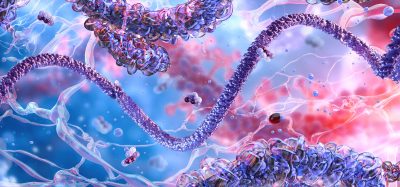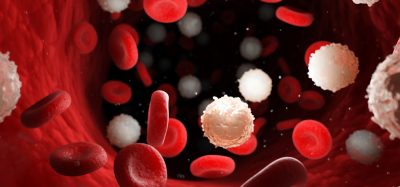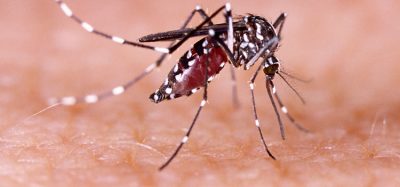Team creates new nanoplatform for delivering drugs into T cells
Posted: 30 March 2022 | Ria Kakkad (Drug Target Review) | No comments yet
Researchers have developed a pH-sensitive drug delivery system in T cells using C-terminal dendrimers with Phenylalanine.
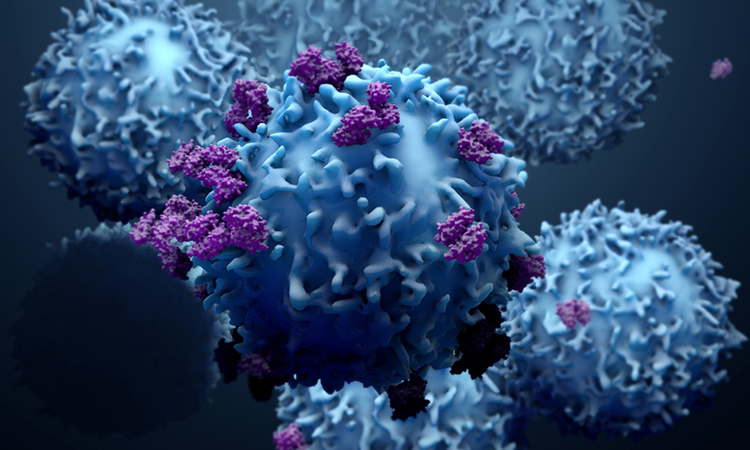

Researchers from Osaka Prefecture University (OPU), Japan have revealed findings that could aid the development of nanoplatforms for direct delivery to T cells to control their functions, a process useful for cancer immunotherapy. The study was recently published in the Journal of Materials Chemistry B.
The researchers performed an experimental study constructing a pH-sensitive delivery system into T cells and their subsets by using carboxy-terminal dendrimers (highly ordered, branched polymeric molecules) bearing phenylalanine (Phe) and hydrophobic acid anhydride (cyclohexanedicarboxylic anhydride, CHex), such as PAMAM-CHex-Phe and PAMAM-Phe-CHex. These dendrimers showed a higher association with splenocyte-derived T cells, which suggests that the hydrophobic effect significantly influences the association of dendrimers with immune cells.
The T-cell association of these dendrimers was examined at different pH and temperatures using fluorescence-activated cell sorting, where murine splenocytes stained with an anti-CD3 antibody were used. Along with this, the association of PAMAM-CHex-Phe and PAMAM-Phe-CHex with some culture cell lines and T cell subsets, such as CD4-positive helper T cells (CD3+CD4+), CD8- positive killer T cells (CD3+CD8+) and activated T cells (CD3+CD69+) was also examined. In order to confirm the internalisation of these dendrimers into T cells, the team used confocal microscopic imaging to observe the intracellular distribution of PAMAM-CHex-Phe and PAMAM-Phe-CHex.
Biomarkers are redefining how precision therapies are discovered, validated and delivered.
This exclusive expert-led report reveals how leading teams are using biomarker science to drive faster insights, cleaner data and more targeted treatments – from discovery to diagnostics.
Inside the report:
- How leading organisations are reshaping strategy with biomarker-led approaches
- Better tools for real-time decision-making – turning complex data into faster insights
- Global standardisation and assay sensitivity – what it takes to scale across networks
Discover how biomarker science is addressing the biggest hurdles in drug discovery, translational research and precision medicine – access your free copy today
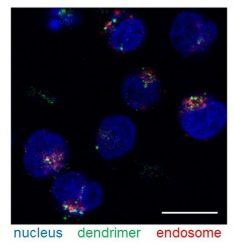

Detailed microscopic imaging showing the intracellular distribution of carboxy-terminal Phe- and CHex-modified dendrimers into T cells
[Credit: Chie Kojima, Osaka Prefecture University].
“Although T cells play important roles in various immune reactions, there are only a few reports on delivery systems into T cells. In this study, we applied the Phe-modified dendrimers to a pH-sensitive drug delivery system into T cells. Dendrimers with different amino acids and acid anhydrides were synthesised and their pH-responsive association with T cells and their subsets was investigated,” said Associate Professor Chie Kojima.
This experimental study has successfully presented the findings in terms of synthesis and pH sensitivity of the carboxy-terminal dendrimers bearing Phe; pH-responsive association of the carboxy-terminal dendrimers bearing Phe with T cells and T cell subsets including activated T cells; and internalisation of PAMAM-Phe-CHex and PAMAM-CHex-Phe into T cells.
“Our results showed that Phe- and CHex-modified dendrimers have a delivery potential to T cells and their subsets. This will play a key role in cancer immunotherapy,” concluded Kojima.
Related topics
Drug Delivery, Drug Development, Drug Discovery Processes, Drug Leads, Drug Targets, Immuno-oncology, Immuno-oncology therapeutics, Immunology, Immunotherapy, Microscopy
Related conditions
Cancer
Related organisations
Osaka Prefecture University (OPU)
Related people
Chie Kojima




